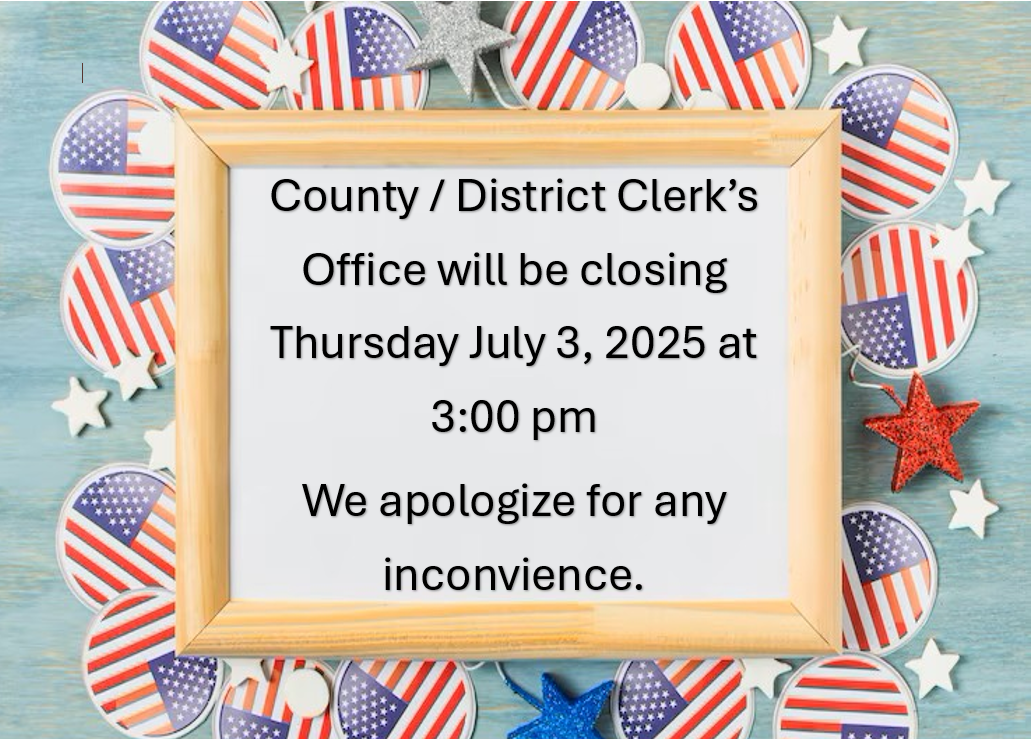
County Clerk
The county clerk is an essential figure in the administration of local governance, responsible for a diverse range of administrative duties and community services. The role of County Clerk varies throughout each of the 254 Texas counites.
1. Administrative duties: Keeping track of county records, managing public databases and ensuring the integrity of official documents.
2. Community Services: such a marriage licenses and business permits, which have a direct impact on the lives of citizens.
3. Election Administration: Overseeing electoral processes, and certifying election results, and ensuring fair and transparent elections.
Responsibilities of the County Clerk's Office
Records Management: Maintains and preserves public records, including property records, court documents, vital records, and various legal documents, including deeds, liens, judgments, and other legal instruments related to property and land transactions, ensuring they are properly recorded and accessible to the public.
Elections Management: Oversees local elections, candidate filings, ballot preparation, polling place management, early voting, and election result reporting.
Marriage Licenses: Issues marriage licenses, verify eligibility, and record marriage certificates, as well as manage vital records related to marriages.
Public Access: Ensures that the public has access to government records and information, often offering both physical and online access.
Compliance with Legal Requirements: Adheres to federal and state laws and regulations governing the management and accessibility of public records.
Administrative Support: Provides administrative support to county officials, assisting with document preparation, scheduling, and coordination of official activities.